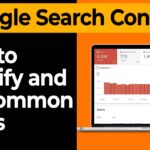
Seasonal keywords can be game-changing for your marketing efforts, whether you’re optimizing for SEO, running PPC campaigns, or crafting social media content. By strategically leveraging these time-sensitive keywords, you can enhance your website’s visibility and maximize conversions during peak periods.
Here’s a comprehensive guide to understanding and using seasonal keywords effectively.
Table of Contents
What Are Seasonal Keywords?
Seasonal keywords are search terms that experience a spike in popularity during specific times of the year. These keywords are closely tied to holidays, events, or seasons and vary based on factors like location and culture.
For example, “Thanksgiving” sees a significant surge in search volume starting in September and peaks in November. Incorporating such terms into your marketing strategy can drive relevant traffic and increase sales during the seasonal rush.
Pro Tip: Start optimizing for seasonal keywords months before their peak. For instance, targeting “Thanksgiving” in September gives you a competitive advantage over those starting in October.
Why Are Seasonal Keywords Important?
Seasonal keywords are crucial for several reasons:
- Increased Traffic and Sales
By ranking for seasonal keywords, you can attract more visitors to your website, translating into higher sales and conversions. - Relevance and Timing
These keywords allow you to align your marketing efforts with user intent during peak seasons, ensuring your content resonates with potential customers. - Competitive Advantage
Early preparation helps you rank ahead of competitors, boosting your visibility before the seasonal frenzy begins. - Enhanced SEO Strategy
Seasonal keywords complement evergreen keywords, making your SEO efforts more targeted and effective.
However, not every business benefits equally. For instance, a winter apparel store can capitalize on seasonal keywords, while a software company might find limited relevance.
Examples of Seasonal Keywords
Here are some popular examples of seasonal keywords:
Halloween, Thanksgiving, Christmas, New Year’s Eve, Valentine’s Day, Super Bowl, Black Friday, Cyber Monday, Spring break, summer vacation, back-to-school season.
For instance, during November, terms like “Black Friday sale” or “Cyber Monday sale” experience a sharp increase in search volume. Planning your campaigns around these keywords in advance can drive significant traffic and engagement.
Seasonal Keywords vs. Evergreen Keywords
Evergreen keywords are consistently searched throughout the year, such as “on-page SEO” or “healthy recipes.” In contrast, seasonal keywords like “Black Friday sale” show spikes in search volume during specific periods.
Understanding the difference helps balance your content strategy. Use evergreen keywords for steady traffic and seasonal keywords for timely spikes.
How to Find Seasonal Keywords
Identifying and targeting seasonal keywords requires a strategic approach. Here are practical steps:
1. Identify Relevant Events and Holidays
Research holidays, events, or seasons that align with your business. For instance:
- A gardening store should target “spring gardening tips.”
- A tax preparation service should focus on “tax season deadlines.”
Make a list of key dates and events to guide your keyword research.
2. Use Keyword Research Tools
Several tools can help you identify seasonal keywords:
- Google Keyword Planner: Analyze search volume trends for keywords like “Black Friday sale.”
- SEMrush Keyword Magic Tool: Generate keyword ideas and analyze trends for terms like “Cyber Monday sale.”
- Ahrefs Keyword Explorer: Dive into search volume, keyword difficulty, and related terms.
- Keyword Surfer: A free Chrome extension that shows keyword data directly on Google Search.
3. Analyze Competitors
Check what your competitors are targeting. Use tools like Ahrefs’ “Site Explorer” to find organic keywords they rank for.
Steps to Follow:
- Search for a seed keyword, e.g., “Black Friday.”
- Note the top-ranking competitors.
- Analyze their websites for seasonal keywords and content strategies.
4. Leverage Google Trends
Google Trends is invaluable for analyzing keyword seasonality. Here’s how to use it:
- Identify Peaks: Use the “Past 5 years” filter to spot trends.
- Discover Related Keywords: Scroll down to “Related Queries” for additional ideas.
- Compare Terms: Use the “vs.” feature to compare interest in terms like “Black Friday vs. Cyber Monday.”
- Filter by Location: Identify geographical differences in keyword interest.
Tips for Success with Seasonal Keywords
- Start Early: Plan your content strategy months in advance to stay ahead of competitors.
- Create Quality Content: Ensure your content adds value and aligns with user intent.
- Diversify Platforms: Use seasonal keywords across your website, blog, and social media channels.
- Monitor Performance: Track keyword performance to refine your strategy for future seasons.
Seasonal keywords are a powerful tool to boost your marketing strategy when used effectively. By identifying the right terms, optimizing early, and monitoring trends, you can capture relevant traffic and maximize your ROI during peak seasons. Start planning now to make the most of your next seasonal opportunity!









